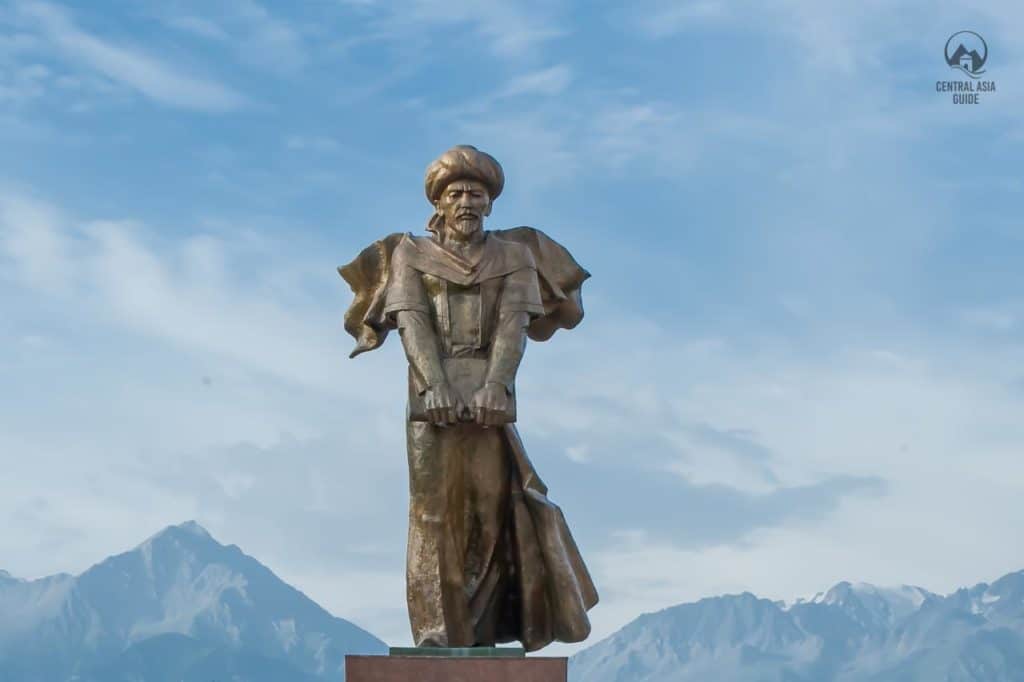Internationally known Kazakh people
Kazakh people
Here is a biography of internationally known Kazakhs who have made a significant contribution to Kazakhstan or to the whole world. Well known Kazakhs include great leaders and scientists accompanied by poets and explorers that have contributed especially to the Turkic world.
AL-FARABI (870-950)
The real name of Al Farabi, who was called the second Aristotle because of his universal knowledge, was Abu-Nasr ibn-Mohammed Tarkhan ibn-Uzlag Al-Farabi. He was originated from the renowned city of Farab, later renamed Otrar, which is located nearby Turkistan. His studies in Baghdad and Aleppo acquainted him with the teachings of the Greek philosophers.
In 160 treatises, Al-Farabi, with his creative use of the works of Plato, Aristotle, Pythagoras, and Ptolemy, built a world of ideas aimed at the reconciliation of science, philosophy and the philosophical concept of faith. There is hardly a scientific area on which he did not publish his views: philosophy and religion, ethics and aesthetics, political theory, logic and rhetoric, music, mathematics, physics, astronomy, medicine and scientific theory. Al-Farabi spent the last years of his life in Cairo, Aleppo and Damascus, where he died. Kazakhstan’s biggest scientific institute, the Al-Farabi Almaty State University, bears his name.

ABLAI KHAN (1711-1781)
Abdulmansur Ablai was a Sultan until he was declared Khan of the Middle Horde in 1771. He played a significant role in the union of the three Kazakh Hordes. Ablai Khan maintained an austere and thoroughly organized hierarchy of power and a strong army. At the same time, he developed a network of diplomatic and commercial connections with Russia, China and the Khanates of Zhungaria, Bukhara and Khiva.
In 1740, he swore loyalty to Russia and requested integration. This saved him from imprisonment by the Zhungars: in 1740 he has released thanks to the intervention of a Russian embassy. In 1772 he reconfirmed his vow of loyalty to Russia. The Russians amply demonstrated their gratitude for the service rendered to them by Ablai Khan. The peaceful submission of a major part of the Kazakh steppe was rewarded with annual transfers of money and other forms of support. Ablai Khan’s head was displayed on the 100 tenge banknote (now replaced by a coin).
KENESARY KASYMOV (1802-1847)
Kenensary Kasymov (1841 – 1847), a grandson of Ablai Khan, was declared khan of the Kazakhs when the Russian Empire was already fully in control of Kazakhstan.
Kenesary Khan’s rise in popularity was in defiance of Russian control of Kazakhstan, and his time as khan was spent in continuous fighting with the Russian imperial forces until his death in 1847.
During the last decade of his life, Kenesary Khan had become increasingly regarded as a hero in Kazakh literature and media. This however, is a relatively recent view as more outspoken views were not possible until Kazakhstan was no longer part of the USSR.
CHOKAN VALIKHANOV (1835-1865)
Chokan Valikhanov was a polymath, an ethnographer, traveler, geographer and army officer.
ABAI KUNANBAYEV (1845-1904)
A great thinker, great poet and consummate fighter for the prosperity of the Kazakh people, Abai Kunanbaev, became the leader of Kazakhstan’s classic literature.
Read more about Kazakh culture
See also Uzbek, Kyrgyz and Tajik people
Page updated 1.1.2023